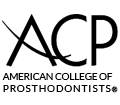You have a problem. We have the solution.
-
All on 4 Ricky
-
All on 4 Sheryl
-
All on 4 Shawn
Everything You Need To Know About All-on-4® Dental Implants
All-on-4® dental implants are the epitome of modern dental technology. The newer materials that are now being used to replace missing teeth with the All-on-4® or to manufacture dentures to replace missing or infected teeth have highly useful features: the advantages of ease of placement, sturdiness, and long-lasting use.
However, as a patient, you may be searching for answers to some essential questions about getting your perfect dentures or dental implants to replace your missing natural teeth and restore your oral health and confidence.
All-on-4® Dental Implants – What Are They?
Missing teeth are functional and cosmetic handicap. If the dental surgeon reinforces your upper or lower jaw using dental implants and then replaces the missing teeth with natural-looking artificial teeth, your dental problems would be resolved. That’s what All-on-4® dental implants do. As a part of this procedure, your surgeon will support an entire dental arch of teeth using just four implants.
How Do All-on-4® Dental Implants Function?
All-on-4® dental implants are artificial teeth that are set in place using supportive implants and bridges. Four supportive titanium implants are inserted into each jaw to form the foundation for a dental bridge. Once the scarring heals, natural-looking artificial teeth are fixed to the implants to replace your missing teeth effectively.
Many patients with tooth loss often have some degree of bone loss. However, All-on-4® restoration is still a viable option for such patients. By tilting the posterior implants by 45 degrees, the need for getting a bone graft reduces. Dentists prioritize using the denser bone that’s still a part of the jaw by angling the implants. This positioning also has the added advantage of bypassing the nerve canal in the lower jaw and the sinus cavities in the upper jaw.
What Procedures Are Included In The All-on-4® Restoration?
The procedure begins with a dental consultation. You’ll have to sit through one or two pre-operative appointments with your general dentist, oral surgeon, and restorative dentist to devise an effective treatment plan. They’ll take X-ray scans, photographs of your dentition, dental impressions, and the relevant oral measurements.
After the consultation process, the surgical plan implementation begins. The surgery involves extractions (if necessary), artificial teeth fitting, and the required dental adjustment - all performed within 24 hours. You’ll be sedated, mostly using an IV drip during the procedure.
The dentist will call you in for follow-up check-ups to monitor the fit of the replacement teeth. Your dentist will also check whether the dental implants are fused to your bone, and evaluate the surgical wounds that should fully heal within six months.
What Are The Differences Between All-on-4® Implants And Traditional Implants?
There are many differences between All-on-4® dental implants and traditional dental implants.
Bone Grafting: All-on-4® contains four implants that provide support to the whole of dental arch and, therefore, doesn’t require any bone grafts. Traditional dental implants require around eight single implants to provide support to the entire dental arch so bone grafting may be necessary.
Treatment time: The four implants that are part of All-on-4® contain two angled posterior implants, which enable the implant posts to be longer. With traditional implants, each implant is inserted separately. Both dental implants offer durable support to the artificial teeth, but the treatment time for All-on-4® is significantly lesser than traditional implants.
Ease of eating food: All-on-4® surgery mostly happens within 24 hours. In fact, the implantation surgery and insertion of replacement teeth occur on the same day. Patients can start eating and chewing food regularly within 24 hours of the surgery. However, with traditional implants, patients have to wait for weeks between surgeries: a factor that can drastically affect their regular eating habits.
Treatment cost: Traditional dental implants require around eight implants to support an entire dental arch. More implants would require a reinforced jaw bone. So a bone grafting procedure may be required before the implantation procedure. The involvement of additional procedures makes traditional dental implants more expensive than All-on-4®.
Should You Get All-On-4®?
Typically, All-on-4® is the selected mode of treatment for qualifying patients who have to replace the majority of their lost natural teeth. Also, those patients with a lower bone density - due to diseases such as diabetes or osteoporosis - who cannot get bone grafting done, can benefit from the All-on-4® restoration procedure.
All you need to do is attend your dental appointment, and your dentist will thoroughly evaluate your oral health. Based on the examination and your diagnosis, possible treatment options will be explained to you. After that, you can take a call whether you want to go for the All-on-4® or not.
What Are The Benefits Of All-on-4®?
All-on-4® implants offer many benefits.
Patients who don’t have most of their natural teeth can get the cosmetic and functional use of their mouth back due to the artificial teeth.
All-on-4® restoration has a reasonably high success rate.
Highly invasive, uncomfortable, and expensive procedures like bone grafting are rarely required.
The procedure takes between one to two hours.
With traditional implants, recovery takes anywhere between 3-6 months. With All-on-4® implants, full oral functionality returns on the same day.
What Does Postoperative Care For All-on-4® Look Like?
All-on-4® implants have the added advantage of immediate dental functionality. After your surgery, the dentist will give you implant-care instructions that need to be followed. As implants are easy to clean, the instructions are not that hard to follow. You will have to attend postoperative check-ups prescribed by the dentist.
What If I Am An Anxious Patient?
Everyone experiences some level of anxiety brought on by their diagnosis or an upcoming surgery. If you convey your fears to your dentist, they will try to address all your concerns to make you feel comfortable. If you’re worried about pain, don’t be. All-on-4® patients are sedated during the surgery.
How Much Does All-on-4® Cost?
You can call your dentist’s clinic directly to ask about the pricing of All-on-4®. All-on-4® implants cost half as much as traditional implants. You can use the readily available payment plans to finance your All-on-4® treatment.
How To Find A Dentist Who Can Perform An All-on-4® Dental Restoration?
There are many qualified dentists in the Dallas Fort Worth area. You can call a reputed dentist’s office to book your dental appointment. If the meeting goes well, your new dentist will analyze your oral health, offer the best possible solutions, and actively work towards restoring your radiant smile.
Why Choose Dr. Darian Kaar?
Prosthodontist Dr. Darian Kaar is a highly experienced and qualified dentist with extensive experience in restoring the oral health and aesthetics of patients with missing or infected teeth.
At his dental clinic, the All on Four Dental Implant Center, Dr. Kaar will take you through the innovative All-on-4® dental implant treatment for dental restoration.
Dr. Darian Kaar has a Master of Science degree in Dentistry and a degree in Prosthodontics. He’s also a contributing member of prestigious dentistry institutions like the American Board of Prosthodontics, International Congress of Oral Implantologists, and the American College of Prosthodontists.
**OAC (620 score or higher)
*Cash Payment Discount
*** Cannot be combined with any other offers or insurance.
25 Years of Experience. Over 10,000 Smiling Patients.
What some of our patients are saying
@Copyright 2024. All Rights Reserved.



-new.png)


























































